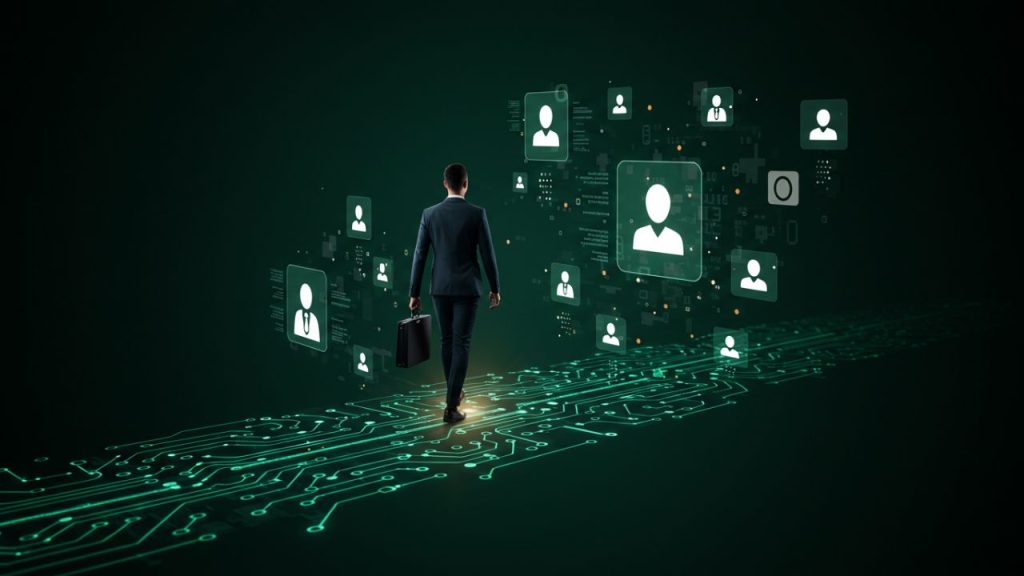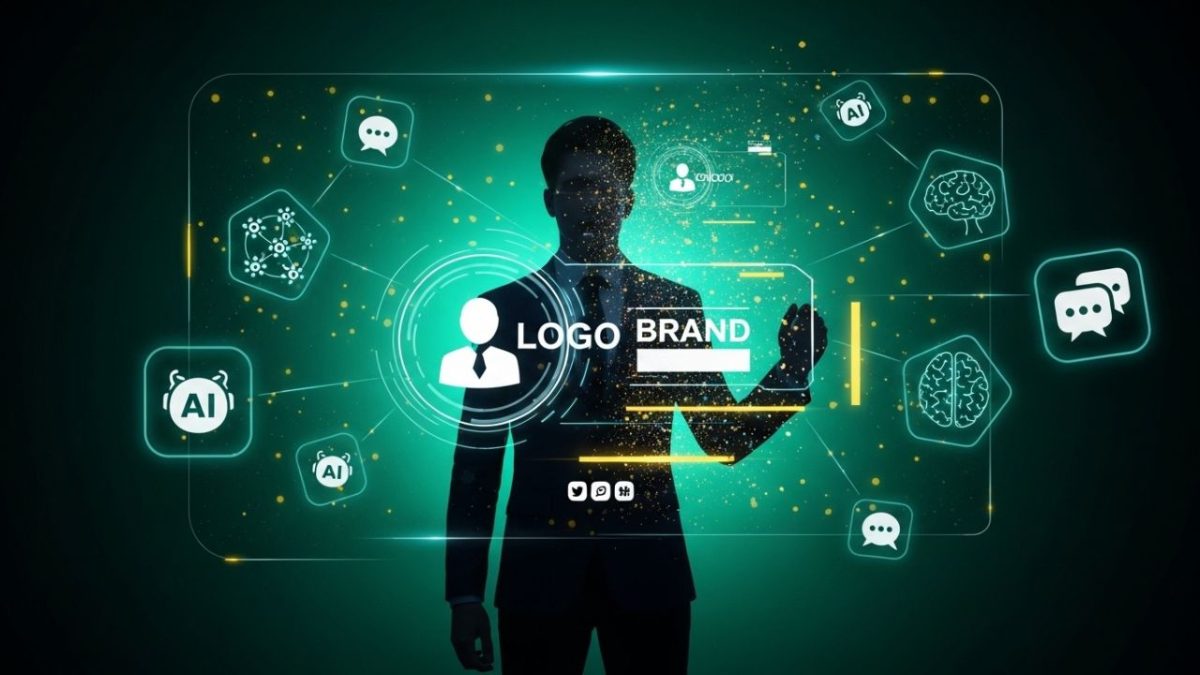Introduction – When AI Meets Identity
Not too long ago, personal branding meant polishing your resume, designing a logo, or sharing achievements on LinkedIn. Fast forward to today, and the digital landscape looks radically different. AI tools are writing blog posts, generating profile pictures, creating resumes, and even replicating voices.
In this AI-powered era, the question is no longer “Do you have a personal brand?”—it’s “Does your personal brand stand out in a world where machines can mimic human presence?”
This blog explores how personal branding will evolve in the age of artificial intelligence, why authenticity is now the ultimate differentiator, and what practical steps you can take to ensure your digital identity thrives in the years ahead.
Why Personal Branding Has Entered a New Era
The AI revolution has blurred the lines between automation and authenticity. Consider this:
- AI Content Creation – Tools like ChatGPT, Jasper, and Copy.ai allow anyone to produce professional-grade content in seconds.
- AI-Generated Visuals – Platforms like MidJourney and DALL·E can create stunning brand imagery without needing a designer.
- AI Hiring & Screening – According to SHRM, 43% of employers already use AI-driven tools to scan resumes and online profiles before interviews.
This means personal branding is no longer optional—it is the filter through which people decide whether you’re a thought leader, a copy-paste AI creation, or a genuine authority.
The Psychology of Trust in the AI Age
Humans are naturally skeptical. When AI-generated content floods timelines, people begin to crave something machines cannot replicate: authentic connection.
- Voice & Storytelling Matter More – A Harvard Business Review study revealed that leaders who shared authentic personal stories were rated 42% more trustworthy than those who only presented data.
- Consistency is Key – With algorithms amplifying your every post, inconsistencies in tone or values are spotted instantly.
- Vulnerability Builds Trust – Sharing behind-the-scenes struggles makes you relatable in a way AI cannot imitate.
In short: In an era where machines sound like humans, humans who sound like humans will stand out.

5 Ways AI Is Transforming Personal Branding (and How to Adapt)
1. AI as Your Creative Assistant, Not Your Voice
AI can help generate drafts, brainstorm content, and analyze data. But if you rely solely on AI-generated writing, your brand risks sounding generic.
Action Step: Use AI to ideate, then infuse personal stories, insights, and real-world experiences that only you can provide.
2. Personal Branding = Digital Footprint Management
Google yourself. What shows up? In the AI era, algorithms decide what others see first.
Action Step: Publish SEO-optimized blogs, update LinkedIn headlines, and build digital authority so your narrative dominates search results, not outdated information.
3. AI-Powered Networking & Relationship Building
LinkedIn’s AI now recommends who to connect with and even drafts messages. But here’s the twist: the most impactful messages are still personal.
Action Step: Use AI to identify opportunities, then add your genuine voice when engaging. For example: instead of sending the generic AI draft, personalize it with a shared interest.
4. Visual Identity in the AI Era
AI headshots look flawless, but sometimes too flawless. A Stanford study found that “over-polished” images reduced trust by 15%.
Action Step: Keep professional visuals, but add human touches—like candid photos, videos, and even live Q&As—to balance polish with personality.
5. Thought Leadership in an AI-Flooded Market
With AI creating endless noise, thought leaders must rise above with original thinking, lived experience, and unique perspectives.
Action Step: Share case studies, personal lessons, and predictions—things an AI cannot fabricate authentically.
Real Success Story – Standing Out in the AI Era
Take Dr. Julie Gurner, a performance psychologist and thought leader. In 2023, she began blending AI-assisted research with her raw, personal insights. Instead of just sharing polished AI posts, she created “behind-the-scenes” threads showing her process.
Result? Her Twitter following grew 3x in a year, and she was featured in multiple media outlets. People didn’t follow her for AI content—they followed her for her human lens on AI.
Common Mistakes to Avoid in AI-Era Branding
- Over-automation – Letting AI do 100% of the work makes your brand robotic.
- Ignoring Digital Hygiene – Outdated profiles, old tweets, or broken links damage trust quickly.
- Chasing Perfection – Overly polished posts feel artificial—authenticity matters more.
- Inconsistent Messaging – Switching tones across platforms confuses your audience.
- Silence – In an AI-driven world, staying invisible is the biggest mistake.
Future Trends in Personal Branding and AI
- AI Reputation Scores – Recruiters may soon rely on AI-generated “credibility scores” based on your online presence.
- Video & Voice Branding – Short-form videos, podcasts, and authentic voice content will be more important than text posts.
- AI + Human Co-Creation – Brands that openly mix AI efficiency with human authenticity will thrive.
- Metaverse & Virtual Identity – Expect avatars and virtual spaces to become extensions of personal brands.
- Authenticity Economy – The most valuable brands will be those that radiate trust, empathy, and humanity.
FAQs
Q1: Will AI replace personal branding?
No. AI may automate tasks, but personal branding is about trust, relatability, and identity—things only humans can own.
Q2: How do I balance AI and authenticity?
Use AI for research, drafting, and design. Then, layer your personal stories, experiences, and unique voice.
Q3: Which platforms matter most in the AI era?
LinkedIn, personal websites, YouTube, and Google search results remain crucial. Video-first content is growing fastest.
Q4: Do I need to post daily to stay visible?
Not necessarily. Consistency > frequency. Even 2-3 high-quality, human-centered posts per week outperform daily generic content.
Q5: What skills will matter most for personal branding in the AI age?
Storytelling, emotional intelligence, video presence, and the ability to blend tech with humanity.
Q6: Can introverts build strong brands with AI tools?
Absolutely. AI can handle the heavy lifting of content creation, while introverts can shine through thoughtful, authentic engagement.
Conclusion – The Human Brand Always Wins
In the AI era, where machines can mimic human creativity, the real question is: What makes you different?
The answer lies in your story, your voice, and your authenticity. Personal branding in the age of AI is not about competing with machines—it’s about leveraging them as tools while doubling down on the one thing they cannot replicate: you.
Remember: In a digital world full of AI-generated noise, the most human brand will always be the most powerful.



